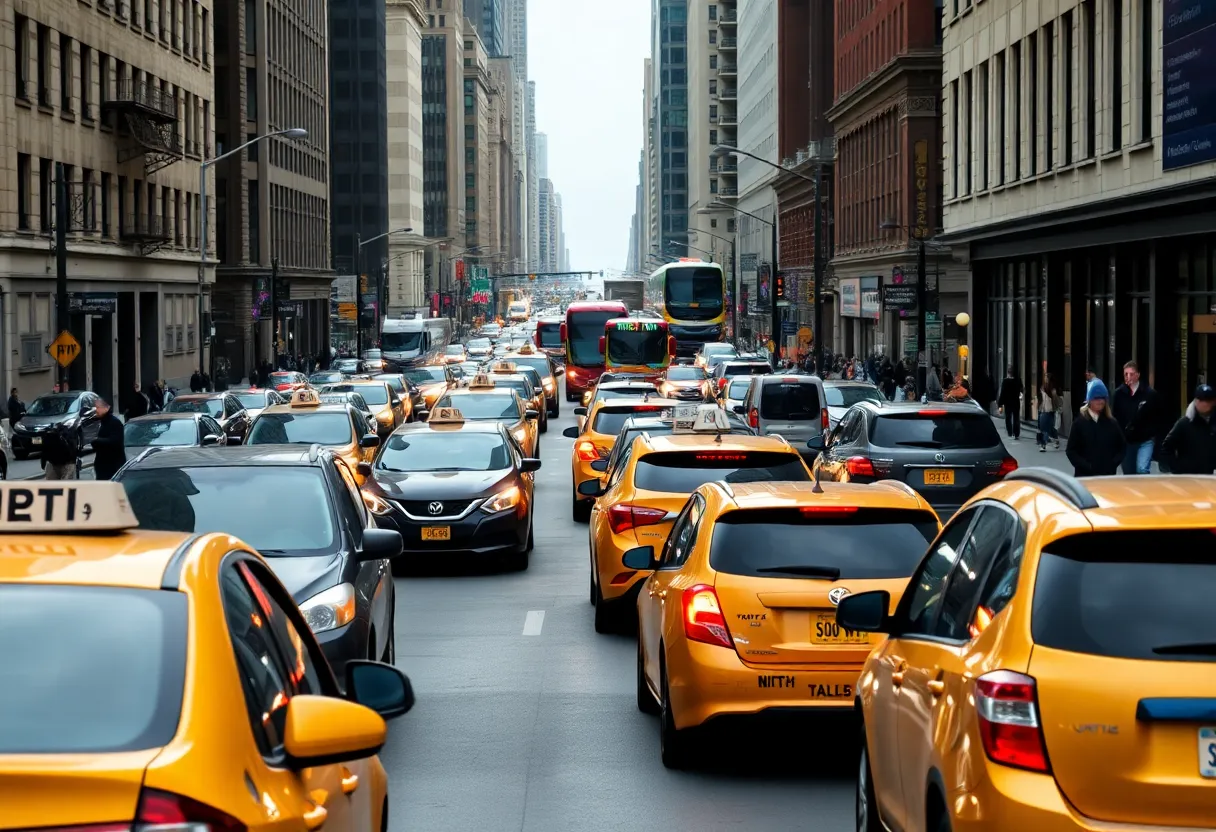News Summary
New York City is embroiled in a heated debate over congestion pricing, a new toll initiative launched in 2024 aimed at easing traffic and funding transit improvements. President Trump finds himself at odds with both business leaders advocating for the toll and key figures in his constituency opposing it. The future of this initiative, seen as a potential funding solution for transportation while addressing gridlock, remains uncertain as political and legal challenges loom.
New York City at a Crossroads with Congestion Pricing
In the bustling streets of New York City, a major debate is brewing regarding congestion pricing. This new toll initiative kicked off on January 5, 2024, aimed at easing traffic and funding public transit upgrades. However, there’s a twist: President Donald Trump, who has traditionally vowed to eliminate such tolls, finds himself caught in a dilemma.
The Business Community Speaks Up
Business leaders from the Partnership for New York City are actively lobbying for Trump to reconsider his stance on congestion pricing. Under the leadership of Kathy Wylde, they are asserting that this toll aligns beautifully with traditional Republican values, such as reducing taxes and cutting unnecessary regulations. Their message to the President is clear: this could be a win-win for everyone involved, especially for the business community struggling through a post-pandemic recovery.
Several influential figures have reached out to Trump, urging him to see congestion pricing as a practical solution to fund transit projects without placing additional burdens on taxpayers. New York City’s comptroller and a Democratic candidate for mayor, has emphasized the importance of considering the business perspective in this matter, hinting that the economic health of the city is at stake.
A New Conservative Approach
Congestion pricing, touted as a market-driven approach, has its roots in ideas from conservative think tanks. Proponents argue that this initiative can effectively raise funds for the Metropolitan Transportation Authority (MTA) while simultaneously addressing the gridlock plaguing Manhattan. Recent reports have shown that the MTA collected nearly $160 million from the tolls within just three months after the program started, showcasing its immediate financial benefits.
Former Trump administration infrastructure advisor DJ Gribbin has even penned opinion pieces advocating for this pricing model, noting improvements in traffic patterns since its original rollout. While this reflects potential positive outcomes, it doesn’t go unnoticed that Trump has called the toll “really horrible”. Yet, his willingness to engage in talks with New York Governor Kathy Hochul suggests he may be reconsidering his initial position.
A Pushback from Key Political Figures
However, Trump’s base is not entirely on board with this initiative. Several notable figures from his suburban New York constituency, like Reps. Mike Lawler and Nicole Malliotakis, fiercely oppose congestion pricing. Their fear is that the tolls are detrimental to the working class, potentially adding further financial pressure to commuters.
Polls indicate that around 60% of New Yorkers support continuing the congestion pricing plan, which gives business advocates a glimmer of hope that Trump may pivot to support it. But it’s a tightrope walk for the President, as he weighs the backing from the business community against concerns from his base.
The Bigger Picture and Ongoing Legal Challenges
As discussions continue, the implications go beyond local tolls. Under Trump’s federal government, the administration may threaten to pull federal funding for key NYC transportation projects if the congestion pricing is not halted. These negotiations are further complicated by ongoing litigation over the legality of the tolls, prompted by directives from U.S. Transportation Secretary Sean Duffy.
Moreover, some opponents, including officials from New Jersey, are actively working to undermine this pricing initiative. They argue that it negatively affects small businesses and strains daily commuters’ budgets. But on the flip side, advocates for congestion pricing assert that it has led to reduced traffic congestion and improved the efficiency of public transportation in the city.
Legacy, Compromise, and Future Opportunities
As Trump faces the prospect of a significant policy shift, business leaders are keen on aligning him with a legacy of infrastructure success—something he could be remembered for long after his presidency. The stakes are high, and the coming weeks will prove crucial as New York City navigates its future on the road with or without congestion pricing.
Deeper Dive: News & Info About This Topic
- Bloomberg: NYC’s Congestion Toll Raised $159 Million in the First Quarter
- New York Times: NYC Congestion Pricing Legal Challenges
- CBS News: NYC Congestion Pricing and the Trump Administration
- Google Search: Congestion Pricing New York
- Wikipedia: Congestion Pricing

Author: STAFF HERE NEW YORK WRITER
The NEW YORK STAFF WRITER represents the experienced team at HERENewYork.com, your go-to source for actionable local news and information in New York, the five boroughs, and beyond. Specializing in "news you can use," we cover essential topics like product reviews for personal and business needs, local business directories, politics, real estate trends, neighborhood insights, and state news affecting the area—with deep expertise drawn from years of dedicated reporting and strong community input, including local press releases and business updates. We deliver top reporting on high-value events such as New York Fashion Week, Macy's Thanksgiving Day Parade, and Tribeca Film Festival. Our coverage extends to key organizations like the Greater New York Chamber of Commerce and United Way of New York, plus leading businesses in finance and media that power the local economy such as JPMorgan Chase, Goldman Sachs, and Bloomberg. As part of the broader HERE network, including HEREBuffalo.com, we provide comprehensive, credible insights into New York's dynamic landscape.





